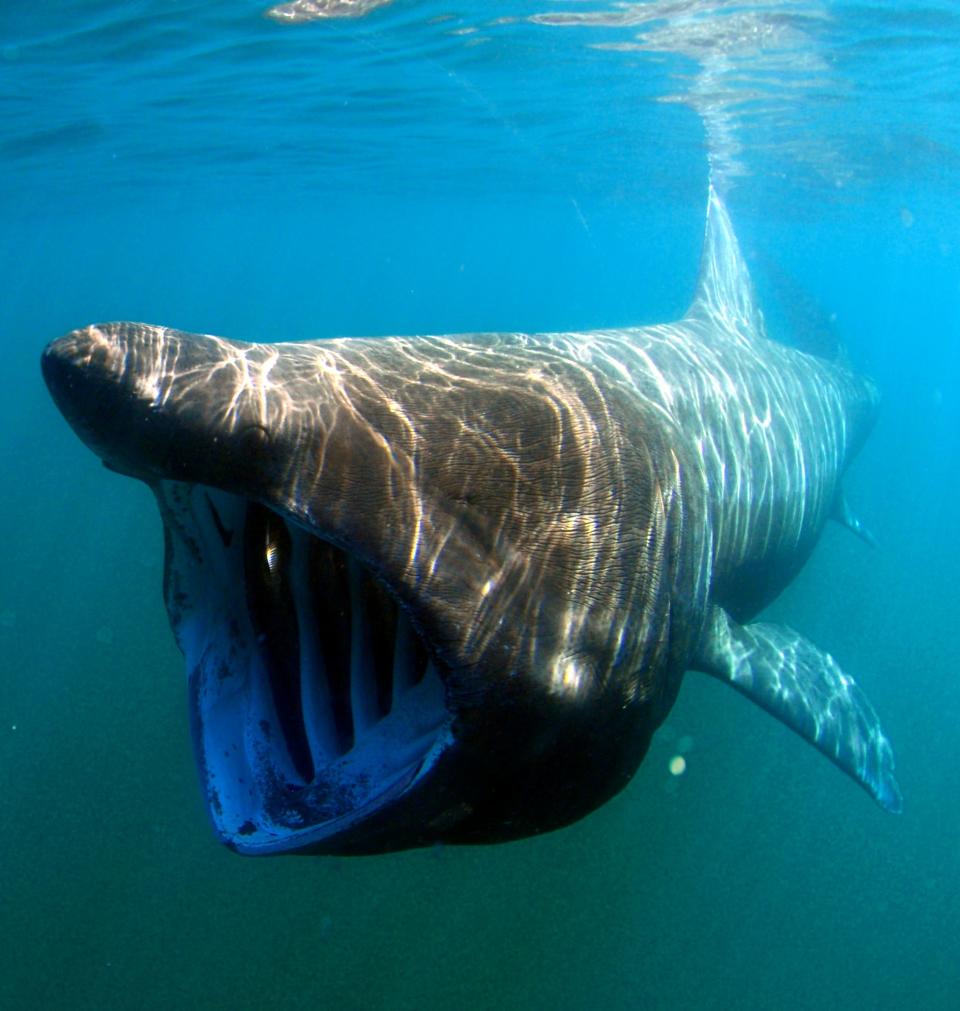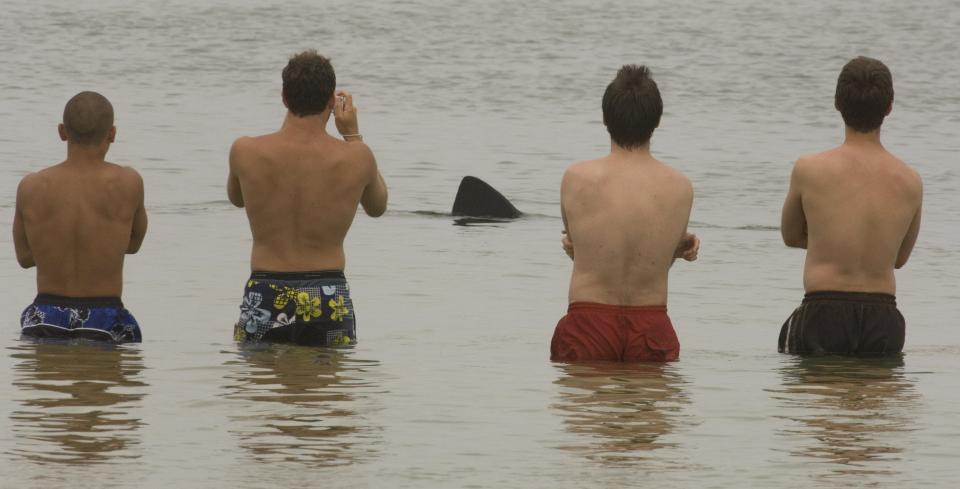A Cape Cod shark we can all love: Bask in the glow of a giant, mellow fish
WELLFLEET — I was complaining about sharks to my life coach, Betta Smartenup the other day.
"I am sick of those dang sharks messing with my beach vibe," I told her. "And also, I'm wicked scared of them."
She advised me to find a shark I could admire, perhaps even one I shared characteristics with. This would help me come to terms with all the sharks in the sea. After eyeballing me, slouched in a beanbag chair, she made the following pronouncement: "you, my friend, are a basking shark."
What the heck was that? How could there be a shark with "basking" in the name? I also love to bask! Right there in the dictionary it says that basking is "to lie or relax in a pleasant warmth or atmosphere." That has been my life's quest, with the minor addition of a cold beer.

I thought all the sharks in the world were sharpening their teeth, waiting for me to marinate myself in chum and swim out for dinner. Their dinner. But there's a mellow shark out there that doesn't want to eat me? How refreshing!
I needed to know more about these sharks that bask. Some people consult textbooks or fancy government websites. Me? I just look at old Cape Cod newspaper clippings.
Thus, I was delighted to find a passage from the great Robert Prescott, former director of Mass Audubon's Wellfleet Bay Wildlife Sanctuary, from a 1980 nature column in the Cape Codder newspaper.
Here's what Bob wrote: "Basking sharks are even more awesome. Twenty-five feet long and weighing several tons, this plankton-eating shark could be a stand-in for Jaws anytime. The only thing it would need is a set of teeth. The basking shark is basically toothless; it only has nubby stubs. Instead of teeth, it has huge, hair-like gill rakers which it uses to strain microorganisms out of the water."
Nubby stubs? That was my nickname in high school! Already I was feeling a kinship with basking sharks, and the fact that they are "basically toothless" is an enormous bonus. And since I have never been confused with a microorganism, except professionally, I felt pretty sure I wouldn't be devoured by this stubby-nubbed giant.

It just got better. Turns out, basking sharks were sometimes thought to be monsters. A 1934 story from the Yarmouth Register, headlined "Sea Serpent was a Shark," had this to say:
"That sea serpent reported seen in Woods Hole channel last week by Thomas Ratcliffe and Eric Warbasse was probably a relative of a 26-foot basking shark captured off Menemsha Light in 1920, said Dr. Charles J. Fish of the Oceanographic Institute at Woods Hole."
Yes, the shark expert's name was really Fish. And the 1934 story also provided this basking shark description from the United States Bureau of Fisheries: "A sluggish, perfectly inoffensive fish, spending much of its time sunning itself on the surface of the water, often lying with its back awash, also on its side, or even lying on its back."
Eerily, a marine biologist observing me in a pond might write the very same thing.
Our final entry falls into the timeless Cape Cod genre of "What the Heck is that on the Beach?" A 1939 Yarmouth Register article, titled "Provincetown Serpent Becomes Basking Shark" also features the longest sentence I have ever read in a newspaper:
"Any hopes held by Wood End Coast Guard Station that the 18-foot skeleton spine found near the station might be that of a great sea serpent, thus substantiating old stories of weird monsters from the deep said to have been seen in these parts have apparently been dashed by William S. Schroeder, curator of the Harvard Museum of Natural History, who, after a careful examination of the remains, has pronounced it the backbone of a basking shark, very rare in these waters."
And so, people of the shark jury, I believe the evidence shows that there is a shark we can all love. Perhaps we can learn from the slower-paced life of the basking shark and find more time for lolling, dawdling and consuming mass quantities of plankton. I'll bring the beer!
Eric Williams, when not solving Curious Cape Cod mysteries, writes about a variety of ways to enjoy the Cape, the weather, wildlife and other subjects. Contact him at ewilliams@capecodonline.com. Follow him on Twitter: @capecast.
Thanks to our subscribers, who help make this coverage possible. If you are not a subscriber, please consider supporting quality local journalism with a Cape Cod Times subscription. Here are our subscription plans.
This article originally appeared on Cape Cod Times: A Cape Cod shark we can love: It won't even bite

